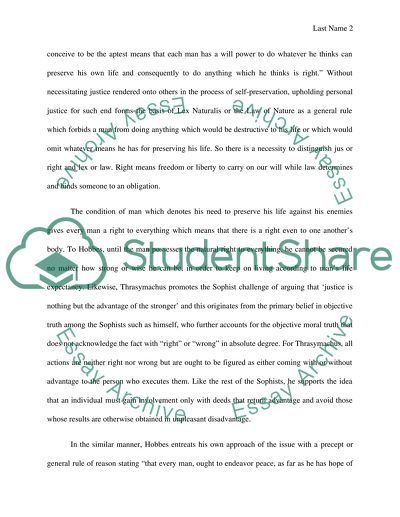Cite this document
(“Is Thrasymachus and Hobbes right to see human nature in such stark Essay”, n.d.)
Is Thrasymachus and Hobbes right to see human nature in such stark Essay. Retrieved from https://studentshare.org/philosophy/1443352-is-thrasymachus-and-hobbes-right-to-see-human-nature-in-such-stark-terms-or-is-socrates-right-to-see-justice-as-something-good-in-and-of-itself
Is Thrasymachus and Hobbes right to see human nature in such stark Essay. Retrieved from https://studentshare.org/philosophy/1443352-is-thrasymachus-and-hobbes-right-to-see-human-nature-in-such-stark-terms-or-is-socrates-right-to-see-justice-as-something-good-in-and-of-itself
(Is Thrasymachus and Hobbes Right to See Human Nature in Such Stark Essay)
Is Thrasymachus and Hobbes Right to See Human Nature in Such Stark Essay. https://studentshare.org/philosophy/1443352-is-thrasymachus-and-hobbes-right-to-see-human-nature-in-such-stark-terms-or-is-socrates-right-to-see-justice-as-something-good-in-and-of-itself.
Is Thrasymachus and Hobbes Right to See Human Nature in Such Stark Essay. https://studentshare.org/philosophy/1443352-is-thrasymachus-and-hobbes-right-to-see-human-nature-in-such-stark-terms-or-is-socrates-right-to-see-justice-as-something-good-in-and-of-itself.
“Is Thrasymachus and Hobbes Right to See Human Nature in Such Stark Essay”, n.d. https://studentshare.org/philosophy/1443352-is-thrasymachus-and-hobbes-right-to-see-human-nature-in-such-stark-terms-or-is-socrates-right-to-see-justice-as-something-good-in-and-of-itself.


